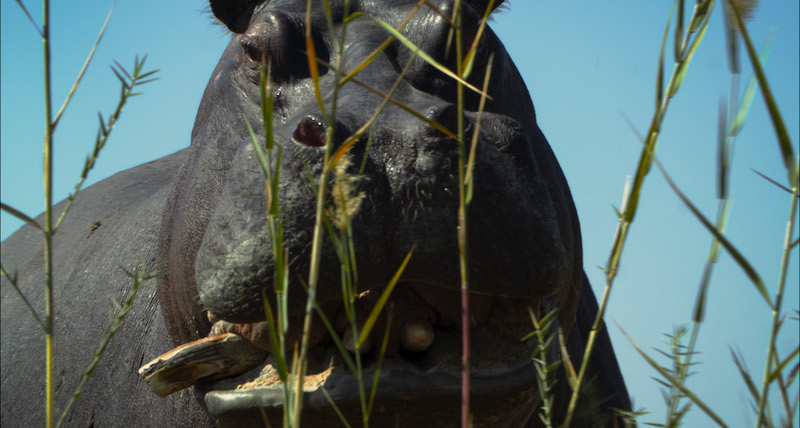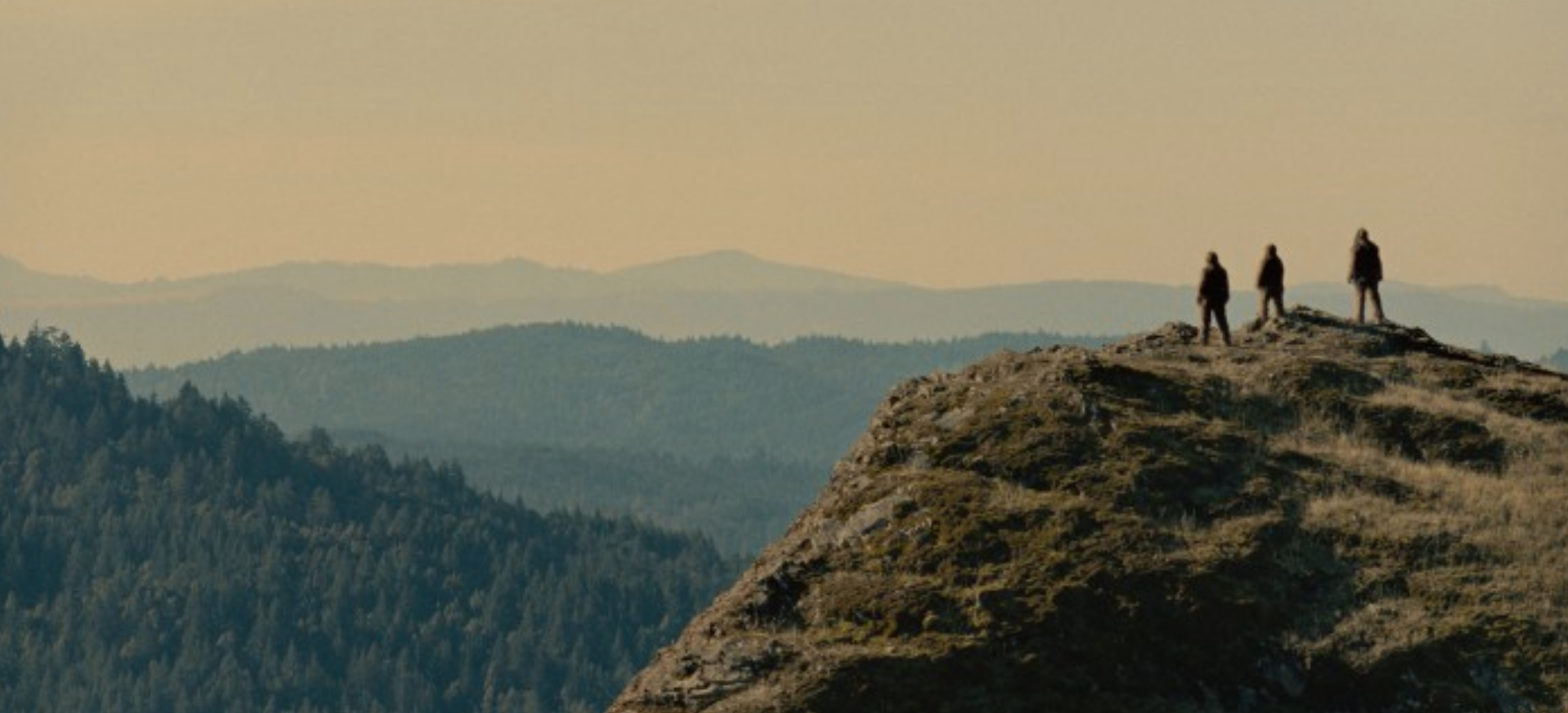by Elisa Giudici
 L'EMPIRE © Tessalit Productions
L'EMPIRE © Tessalit Productions
If I think about the typical film competing at Berlin, I imagine something quite dramatic, decidedly political, and sometimes rather heavy. This edition of the Berlinale has added the adjective "bizarre" to this profile of mine. Here are four films seen in these hours that deserve this adjective.
L’EMPIRE by Bruno Dumont
Let me preface this one: Dumont and I just don't see eye to eye. He might be the only French director whose work I can't seem to appreciate, despite my overall fondness for French cinema. Given this history and a rather late screening on a very heavy day, the recipe for disaster was served. However, one positive thing about L’Empire I can say: in hindsight, it made me reassess his previous film, France, which I saw at Cannes and detested...
 Fabrice Luchini in L'EMPIRE © Tessalit Productions
Fabrice Luchini in L'EMPIRE © Tessalit Productions
L’Empire is truly a baffling film, one that plays with the grotesque and ridiculous comedy that one expects from something by Quentin Dupieux. It truly feels like a Dupieux film in some ways, with all the strengths and weaknesses that implies. We find ourselves in a village on the northern coast of France, populated by bizarre characters, where surreal events occur that make you think a French remake of Twin Peaks is being filmed. But no, it's "just" an alien invasion from a fictitious empire led by Fabrice Luchini. The actor deserves applause; the conviction with which he wears some of the most ridiculous low-budget sci-fi costumes ever seen on screen is admirable!
Anyone approaching this title hoping for a Star Wars parody will be disappointed because that's not even the point. The impression is that Dumont is taking shots at the French political and cultural world, but in such a brisk manner that even with some familiarity with that context, you only realize you didn't understand the punchline or the counterpoint. It's uninhibited, surreal, and with a strong French and masculine touch: if you're a Dumont fan, you'll probably adore it. I did not.
 A TRAVELLER'S NEEDS © Jeonwonsa Film Co
A TRAVELLER'S NEEDS © Jeonwonsa Film Co
A TRAVELLER’S NEED by Hong Sang-soo
Isabelle Huppert has a natural predisposition for outré roles and an incredible ability to immerse herself in even Asian projects that are stranger than her average French film. Her collaboration with the Korean director Hong Sang-soo gives her a role that leaves the viewer perpetually on edge about the intentions and motivations of her character, Iris.
Why has this French woman decided to move to Korea without the economic means, family ties, or a job in the country? How does she manage to gain the trust of strangers when she doesn't even speak their language, charging them handsomely for French lessons she freely admits to improvising with a quirky method, without any prior experience? The answer lies within the film itself, probably a phrase someone said to Hong Sang-soo, himself. He places it in the mouth of the only skeptical Korean person regarding Iris, who tells her son: "You only like her because she's French!"
In A Traveller’s Need, there's a dual linguistic reflection, concerning the transition between Korean and French: cultural, linguistic, and spiritual. Iris "translates" in a brutal way what her students say to her because transposing their feelings and sensations into French means modifying them in light of her European sensibility. Moreover, the film is rich in impasses of misunderstandings, perfectly capturing the difficulty of communicating effectively and deeply, beyond mere pleasantries, when two people speak different languages and use English as a bridge language. Bonus points for Huppert's ability to make the audience laugh by inventing an absurd walk for her character.
 PEPE © Monte & Culebra
PEPE © Monte & Culebra
PEPE by Nelson Carlo de los Santos Arias
Pepe easily clinches the title of the most experimental film of the Berlinale competition this year. It's such a mix of formats, resources, and stylistic expressions that it's quite complex to even decide what genre it belongs to. Its numerous reenactments, archival footage clips, documentary images, and original materials aim to reconstruct the story of the affectionately renowned hippopotamus Pepe by the Colombian population. Legend has it that he was the first and only African hippopotamus to die in Colombia.
Pepe arrived in the country as a pet in Escobar's mansion and was killed after his death, which sets the stage for the movie. Through a distorted and difficult-to-describe voice, Pepe himself (or maybe not?) tells us his story. It begins with Escobar's death, goes back to Africa to trace a (false) tourist portrait of the nature of these animals, then returns to narrate the political and social contradictions of Pepe's second home, Colombia.
Technically, Pepe is impressive for the myriad visual and sonic olutions it adopts to create the voice of its protagonist. Even the soundtrack is "hippopotamic" in its sounds and suggestions, if you will. But it's a demanding viewing experience, showing brilliance at the outset but eventually leaving viewers disoriented and disconnected from the story. Perhaps it would have had more impact if shown in the early days of programming or seen with a fresh mind.
 SASQUATCH SUNSET © Sasquatch Sunset
SASQUATCH SUNSET © Sasquatch Sunset
SASQUASH SUNSET by Nathan Zellner, David Zellner
Confession: I didn't know what the English word "Sasquash" meant, so in the initial stages of the film I was more bewildered than an average viewer might have been. In a primordial and unspoiled atmosphere, we follow the four seasons of a quartet of these vaguely Neanderthal creatures, more intelligent and acute than the animals around them but frustrated by the inability to make the next leap forward. One of them, for example, desperately tries to do math, counting on opening up the world ahead of him but he remains on the verge of surpassing the number three.
Within Sasquash Sunset, the Zellners put all their desire to surprise and unsettle we saw in The Curse, but in a more welcoming and, at times, genuinely moving way. Like Pepe, there are moments when it feels like watching a nature documentary (albeit one produced by Ari Aster, who supported the project), interspersed with joyful forays into the fecal humor so beloved by Ruben Östlund and company.
Despite sounding like a joke film when you describe it, the crucial point of the film is a slow revelation of its meaning, which aligns well with both present concerns and the legendary status of the Sasquash themselves. Kudos to the performers and their sense of irony for engaging in such a risky, ridiculous venture, which reaches a heartbreaking dramatic climax every season, especially when the apex predator marks the territory.